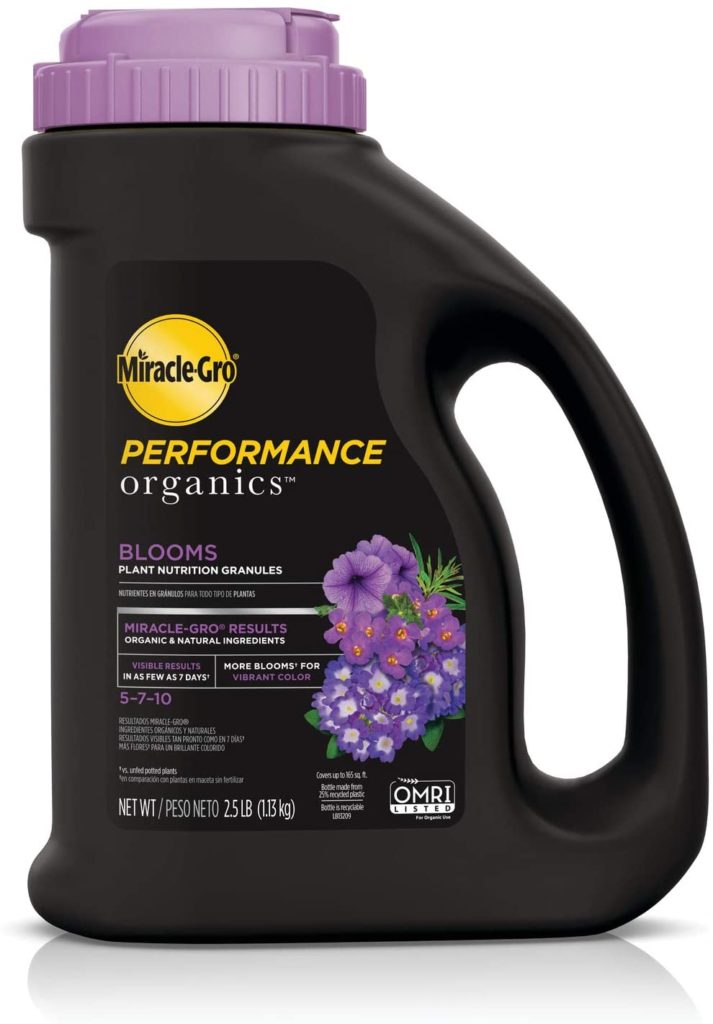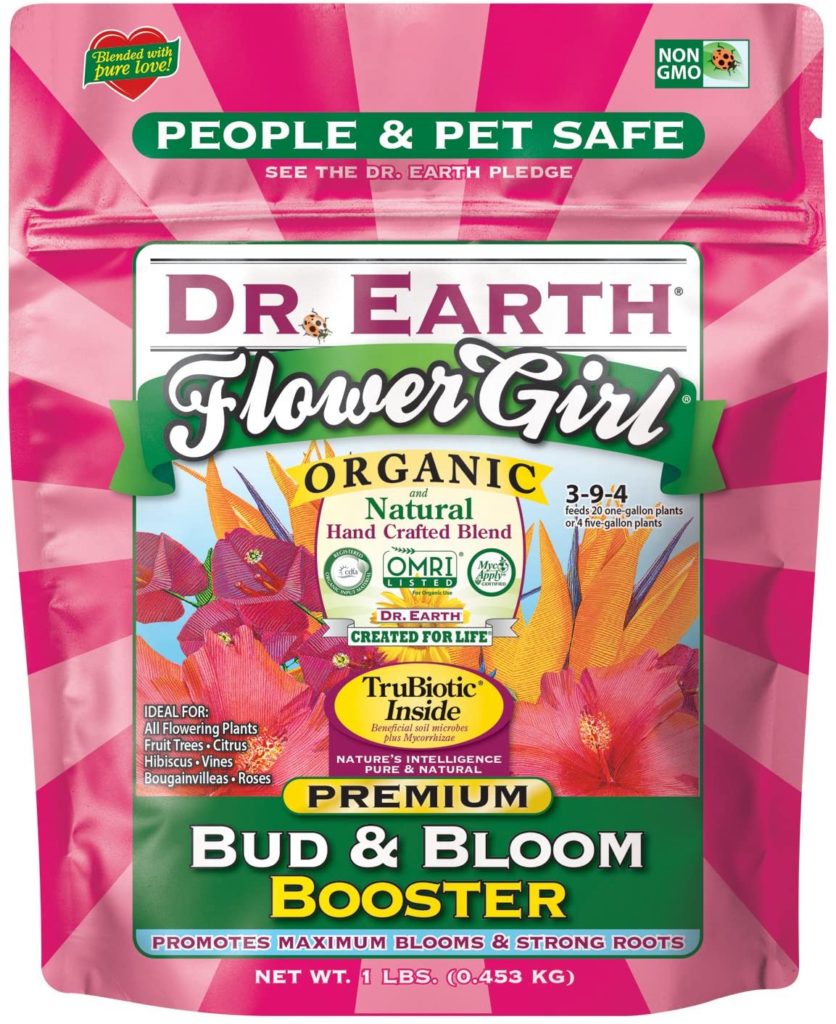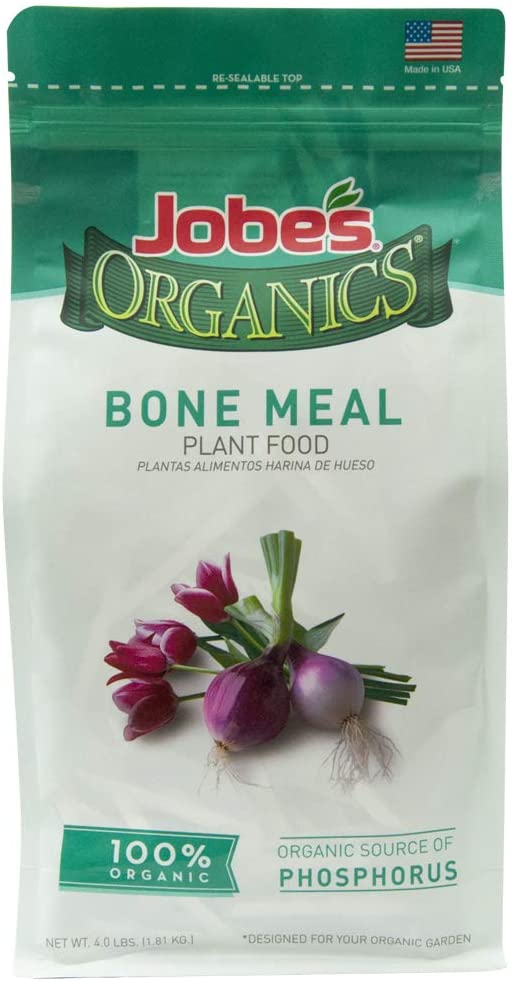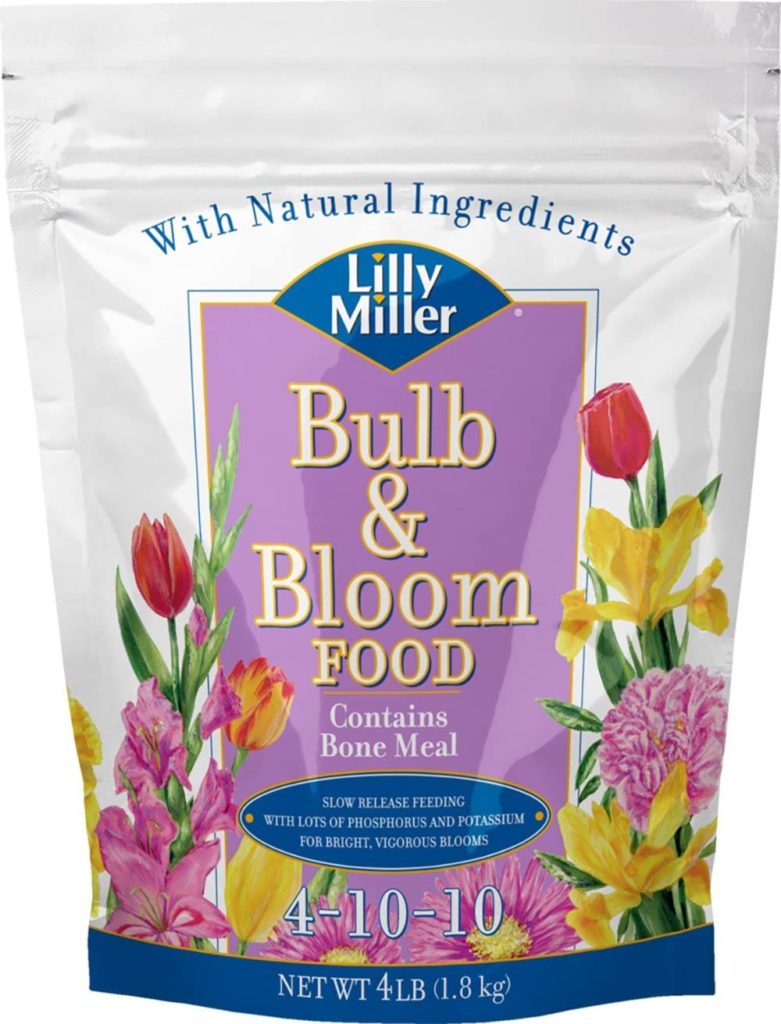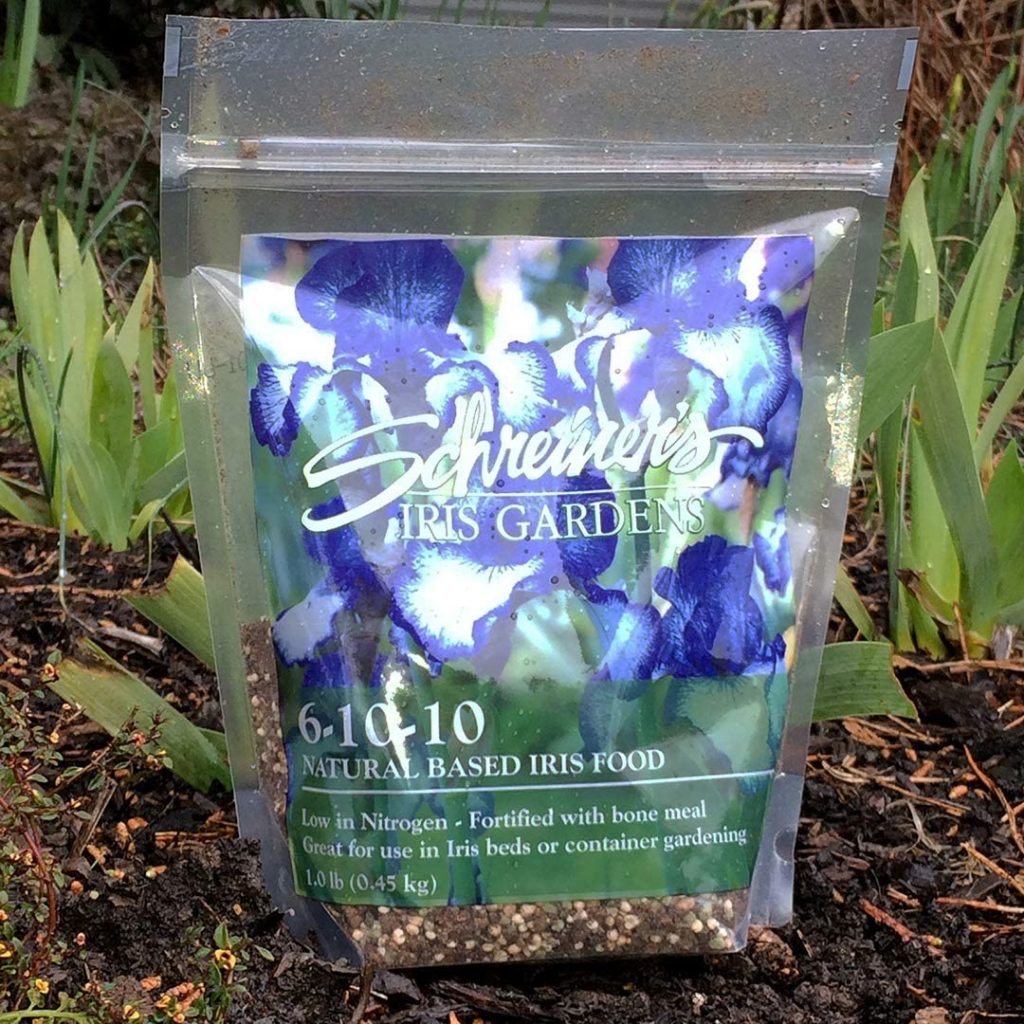Iris is the most beautiful flower, and its beauty cannot be matched. They are available in virtually every color combination you can think of. In recent years, the number of irises and the size of their blossoms have both increased, resulting in the birth of new varieties. When it comes to development and blooming, newer types require more fertilizer than their predecessors. Responding to this demand, plant food manufacturers developed a wide range of formulas to fulfill the diverse requirements of flower-growing environments.
Using low-nitrogen fertilizers, such as those labeled 4- 10- 10, 5- 10- 10, or 6- 10- 10 can help you grow the best irises in your garden. Other nutrients for Iris flower plants include bone meal and fish fertilizer.
Top 5 Best Fertilizers for Irises
Irises are one of the favorite garden plants, owing to the beauty of their petals and the fact that they take little care. Therefore, a higher nitrogen-to-phosphorus-to-potassium ratio should always be sought in nourishing floral products. The type of fertilizer you use will vary depending on your requirements, the size of your plants, and the time of year. Some of the most effective types of fertilizer for irises are listed below, and you may find them beneficial.
1. Miracle-Gro Organics Blooms Plant Nutrition
Miracle-Gro has integrated a variety of odd chemicals into the formulation of these plant nutrients. A blend of natural and organic components, including feather meal and soybean meal as well as soda-nitrate, bone meal, sunflower-husk ash, phosphate rock, and potassium-sulfate, are used to produce this product.
When combined, these goods give 5 percent nitrogen, 7 percent phosphorus, 10 percent potassium, 7.32 percent calcium, 1 percent magnesium, and 1.20 percent sulfur, as well as extra micronutrients such as b-vitamins and trace minerals, among other things. The Organic Materials Review Institute (OMRI) has certified the fertilizer used in organic farming. This plant’s NPK ratio of 5-7-10 is highly beneficial to flowering plants.
Despite what you may have heard, irises do not necessitate a huge amount of Nitrogen straight away. Irises would receive only 1.90 percent of the Nitrogen that they would require. The remaining 39.0 percent of the mixture is water-insoluble, which allows you to feed your Irises slowly and continuously for up to 4-6 weeks. In addition, 0.8 percent of the fertilizer is made up of water-insoluble magnesium, which helps ensure that the Irises never fall behind in the creation of chlorophyll.
Miracle-Gro performance organic flowers plant nutrition food is a natural fertilizer for irises because it is organic and non-toxic. Positive results begin to show within a week of using Irises’ premium blend of products. This fertilizer contains a substantial amount of sunflower hull ash, which is beneficial to plants. In addition, it is a great source of potassium and other critical nutrients. Finally, it helps to increase the hardiness of your iris plants by allowing them to handle environmental stressors better.
Features:
- Granules
- NPK ratio 5-7-10
- Liquid fertilizer
Directions for usage:
For a 10-inch Iris container, four tablespoons of granules should be plenty to cover the soil. Following that, only a small soil and water level are required.
Pros and Cons:
- Convenient storage
- The product that is made from organic materials
- It is not advised for soils that are completely fertile
2. Dr. Earth Organic Bud & Bloom Fertilizer
Dr. Earth Plant Food Company specializes in custom-made combinations available upon request. Like the other products in the company’s premium quality line, this bud & bloom booster is a proprietary blend of the precise nutrients your iris plants require to bloom freely.
Only organically approved items are certified by the OMRI, OIM, CCOF, and NOP, which stands for Organic Materials Review Institute. And there’s even more to it than that! All of these naturally occurring and organic substances, including fish bone meal, bone meal, alfalfa meal, potassium sulfate, feather meal, kelp meal, and kelp flour, are contained in this bloom booster which has been certified with all of the necessary certificates.
In any event, these sources provide both macro-and micronutrients such as Nitrogen, phosphorus, potassium, calcium, magnesium, sodium, etc. The NPK ratio is 3-9-4 in this case. This indicates that the fertilizer contains 3 percent nitrogen, 9 percent phosphorus, and 4 percent potassium. The presence of a high concentration of phosphorus (P) in this fertilizer is the most immediately noticeable characteristic. When it comes to creating Iris flowers, phosphorus is an important factor. The 9 percent P will unquestionably improve the number of flowers produced by your Iris.
Another advantage of nitrogen fertilizers is that they are water-insoluble, allowing them to be used for an extended time. As a result of the delayed release of N, the growth of roots and leaves will continue. This fertilizer possesses several distinguishing characteristics that make it an excellent choice for Irises. Its unique combination of beneficial soil bacteria and mycorrhiza fungi ensures that your garden’s soil remains healthy and rich in nutrients while increasing drainage.
The presence of 6 percent humic acid in the soil has a second benefit in that it increases soil microbial activity, nutrient uptake, and plant drought tolerance, among other things. In addition to iris, you may use it on a variety of other flowering plants, vines, and fruit trees. This product is safe for people and dogs because it has been labeled safe.
Features:
- 100% organic
- NPK ratio is 3-9-4
- Granular
Directions for Usage:
Mix 4 cups of granules into the soil in a 12-inch pot and water thoroughly for potted irises. After that, you should scrape the soil and thoroughly water it again. Check the product label for more detailed directions and reapply for more detailed instructions after two months.
- Handcrafted organic & natural blend
- Every plant in your yard can benefit from a good dose of this nutrient-rich fertilizer
- In this customized blend, there are no GMOs, no chicken dung, and no biosolids (sewage sludge)
- More harm than benefit results from using the wrong amount of fertilizer
3. Jobe’s Organics Bone Meal Fertilizer
Another Jobe’s product has made its way onto the market. As a result of the high concentration of nutrients in this bone meal fertilizer, it is quite popular among gardeners. Because it exclusively feeds your Irises organic steamed bone meal, the fertilizer has been certified organic by the Organic Materials Review Institute (OMRI). The nitrogen-phosphorus-potassium ratio of the fertilizer is 2-14. In addition, calcium is beneficial to iris growth and development since it contains 15% calcium, which helps to ensure their continued growth and development.
As you may be aware, bone meals are an excellent source of phosphorus and calcium. In a similar vein, the fertilizer’s high P and Ca content encourages the development of robust root systems and the production of larger and more abundant blooms. Furthermore, this fertilizer does not contain any water-soluble nitrogen. Because iris require a consistent nitrogen supply, water-insoluble fertilizers are the best choice.
Bone meal is the only source of nourishment that bulbs, roses, trees, and shrubs may use as a sole source of nutrition. To make gardening easier for gardeners, the fertilizer company has developed numerous formulations of this fertilizer suitable for children and pets.
Features:
- 100% organic fertilizer
- Granular
- NPK ratio is 2-14-0
Another Jobe’s product has made its way onto the market. As a result of the high concentration of nutrients in this bone meal fertilizer, it is quite popular among gardeners. Because it exclusively feeds your Irises organic steamed bone meal, the fertilizer has been certified organic by the Organic Materials Review Institute (OMRI). The nitrogen-phosphorus-potassium ratio of the fertilizer is 2-14. In addition, calcium is beneficial to iris growth and development since it contains 15% calcium, which helps to ensure their continued growth and development.
As you may be aware, bone meals are an excellent source of phosphorus and calcium. In a similar vein, the fertilizer’s high P and Ca content encourages the development of robust root systems and the production of larger and more abundant blooms. Furthermore, this fertilizer does not contain any water-soluble nitrogen. Because iris require a consistent nitrogen supply, water-insoluble fertilizers are the best choice.
Bone meal is the only source of nourishment that bulbs, roses, trees, and shrubs may use as a sole source of nutrition. To make gardening easier for gardeners, the fertilizer company has developed numerous formulations of this fertilizer suitable for children and pets.
Directions for usage:
Two fertilizer applications per year are recommended, with most applications taking place in the spring and fall. It is recommended to use one teaspoon per plant for the necessary dosage. After feeding the plants, lightly rake the earth around them and thoroughly water them.
Pros and Cons:
- Natural fertilizer
- It’s simple to use
- Less charring
- Granules of a finer size
- According to climate, results may vary
4. Lilly Miller Bulb & Bloom Food
The NPK ratio of 4/5/6-10-10 is considered optimum for Iris by many gardeners, as you’ll see in the following chart: If that’s the case, you might want to give this bloom booster a shot. A 4-10-10 NPK ratio is used to formulate the fertilizer (Nitrogen, phosphorus, and potassium). Additionally, the fertilizer contains the following macro-and micronutrients and N, P, and K: 6 percent calcium, 0.02 percent boron, 0.10 percent iron, 0.05 percent manganese, and 0.05 percent zinc.
It contains both organic and synthetic ingredients, such as bone meal, dried poultry waste, alfalfa meal, superphosphate, ammonium phosphate, muriate of potassium, calcium and sodium borate, ferrous and manganese oxides, and sodium molybdate qualifies it as a semi-organic bloom booster.
Therefore, the bulb and bloom meal provides Irises with 1.5 percent instant N and 2.5 percent slow-release N from four different sources due to this process. Irises thrive in soils high in P and K because these nutrients provide them with the nutrition they require to bloom and grow to their maximum potential. The additional minerals in this mixture also contribute to the health of your iris plants. In addition, natural elements have been put in the company’s plant food to provide the bulbs with an advantage in the growing season. Irises require a special blend of nutrients to produce their greatest blooming, and this mix is available.
Features:
- NPK ratio 4-10-10
- Slow release
Directions for Usage:
The Bulb and the Bloom by Spatter Lilly Miller Iris plants get 1-2 Tablespoons of food in a circle around them. For more information, refer to the product’s user manual or instructions.
Pros and Cons:
- Natural fertilizer
- It’s simple to use
- Less charring
- Granules of a finer size
- According to climate, results may vary
Also Read: How Long Does Fertilizer Take to Work? All You Need to Know
5. 6-10-10 Controlled Release Iris Food by Schreiner’s Iris Gardens
This fertilizer is beneficial if you want to control the growth of your irises or if you want them to look beautiful in your garden. Flowers like irises are at their most gorgeous when they are in full bloom. However, to get the most out of your bloom, you must provide it with the greatest possible nutrition. And the Controlled Release Iris Food from Schreiner’s Iris Gardens is just what you’re looking for. Controlled-Release Iris Food contains an NPK ratio of 6-10-10, ideal for growing iris.
If you’re having difficulties keeping your irises looking their best, we’ve got some bad news. Your flowers must be nutritionally inadequate if they are to endure the effects of the weather and other environmental stressors to which they are exposed. On the other hand, this fertilizer has the potential to significantly improve the health and resistance of your iris to most external situations. In addition, this is a well-balanced iris fertilizer since it contains only a small amount of Nitrogen and a balanced amount of phosphorus and potassium, which are essential nutrients for irises.
Features:
- NPK ratio is 6-10-10
- Granular
Directions for Usage:
For optimal results, apply a month before and a month after flowering. Then, take a peek at the product description to find out more.
Pros and Cons:
- High-quality fertilizer for your irises
- Promotes optimal Iris blooming
- Improve the health of irises
- Controlled-release fertilizer for accurate dosing
- Excessive fertilizer use can do more harm than good
Frequently Asked Questions (FAQs)
Explore these frequently asked questions to gain thorough knowledge about the best fertilizers for Irises.
It is ideal for fertilizing iris plants just before the flowering season. Many iris varieties bloom in the late spring, it’s ideal to start fertilizing them as soon as the weather warms up, or about six to eight weeks before the flowering period begins.
Although the flowering phase is over, many varieties will require fertilization at some point in the future. Therefore, it is important to maintain track of the soil nutrient status and product instructions, such as how often to apply the product.
Iris requires around 18 necessary nutrients, including basic, secondary, and micronutrients, to complete its life cycle. In addition, science has discovered that Irises require five specific nutrients: Nitrogen, phosphorus, potassium, calcium, and boron, as well as other trace elements. The five nutrients stated above are the most significant in Iris’s fertilization requirements.
The ideal Iris fertilizer contains a higher concentration of Phosphorus and Potassium than Nitrogen and extra macro-and micronutrients such as Boron and Calcium. It also contains both immediate and slow-release Nitrogen.
Conclusion
Irises add a splash of color to spring and summer gardens with their ruffled, bright blooms. However, before you choose a fertilizer, be sure you understand what you want it to accomplish for you. This gives you the ability to select a fertilizer that will match your demands at purchase. As a starting point, choose a fertilizer that is high in potassium and phosphate but low in Nitrogen.
If the bulbs are not in good condition, there will be fewer flowers. You can start growing irises by assessing your soil and obtaining the most appropriate fertilizer for irises. It makes no difference whether the method you use fertilizes your irises; as long as you regularly keep an eye on them, you will be rewarded with beautiful flowers.

